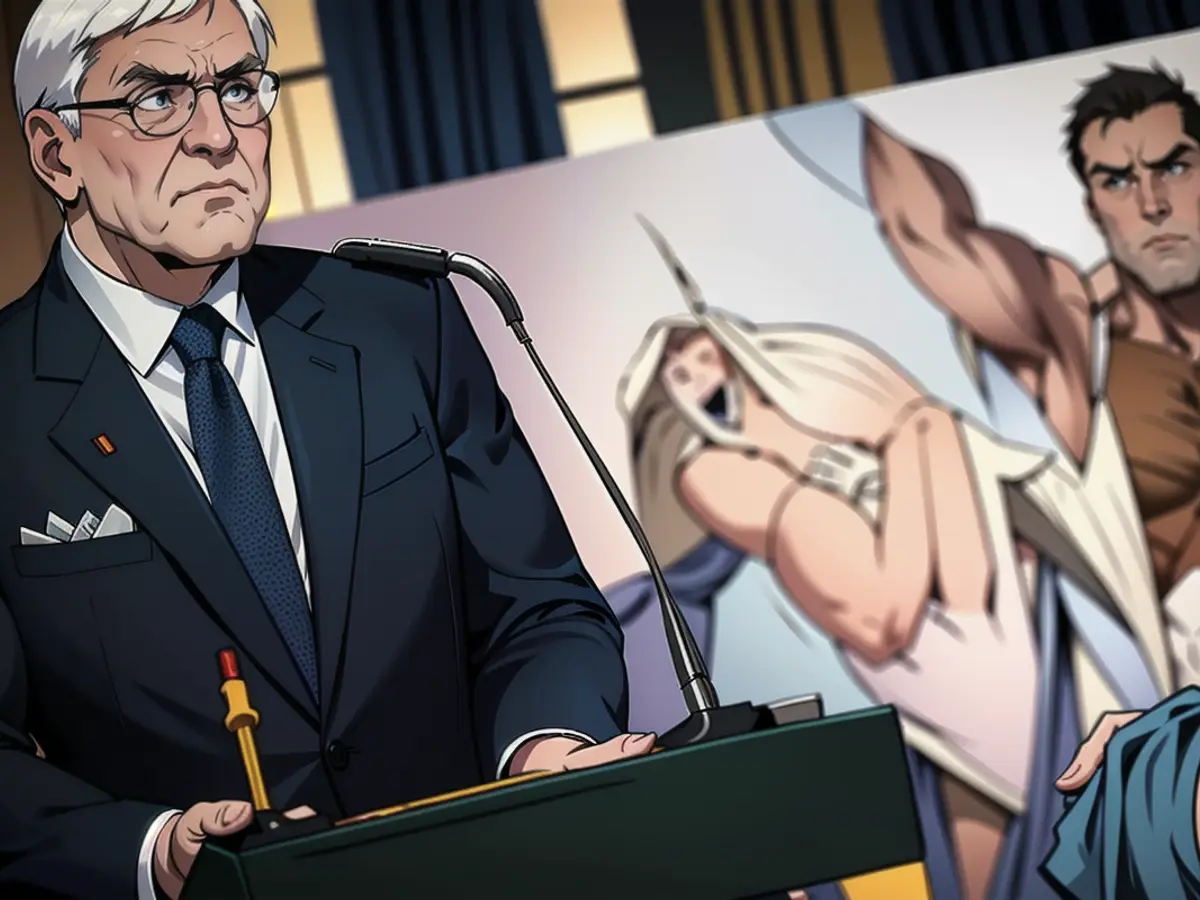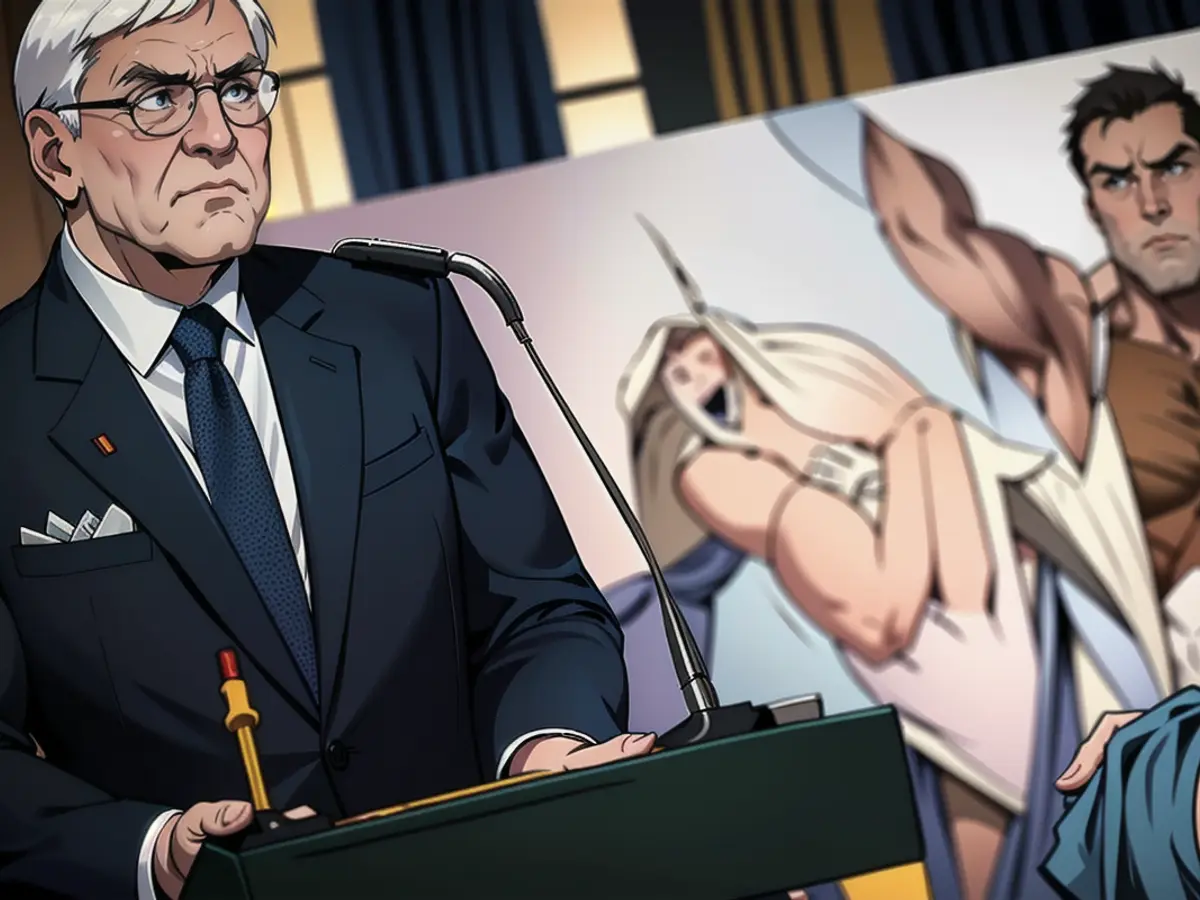Steinmeier commends late Walter Lübcke as a "bold activist."
Five years ago, the tragic murder of CDU politician Walter Lübcke took place. President Steinmeier paid tribute to him as a courageous, people-oriented politician with a strong sense of duty. However, this tribute came with a warning. Attacks on politicians have made this necessary.
Commemorating Lübcke's death on the fifth anniversary, members, politicians, church representatives, and citizens gathered in Kassel. Steinmeier eulogized Lübcke in the Martinskirche as a "hero of action."
"We all wish that Walter Lübcke could have continued to be what he was on June 2, 2019: An upright democrat who took responsibility. A politician who stood up for it, a thoughtful and curious human being," Steinmeier said. Lübcke's staunch democratic stance and commitment to the community cost him his life.
The former Kassel government president was shot dead on his terrace in the northern Hesse town of Wolfhagen-Istha in the night from June 1 to 2, 2019, by right-wing extremist Stephan E. The perpetrator is serving a life sentence. His crime was the first politically motivated murder of a federal German politician by a neo-Nazi in the Federal Republic.
Steinmeier called the act a right-wing extremist terrorist attack, targeting Lübcke and our society as a whole. Hated for defending liberal, democratic values, Lübcke was murdered by those who despised our society. "He had to die because he defended the values that make up our society. That's why this murder cannot leave us at peace," Steinmeier said.
The President also acknowledged that the state had failed in certain aspects. The course of events following Lübcke's murder, including legal proceedings and investigative committees, led to one conclusion: "We do not know if the murder of Walter Lübcke could have been prevented. But we know that we have not done enough to avert the danger."
The act was not random. It had a history. To this history belongs the state's failure to recognize the grave danger of right-wing terror in its entirety. "For too long, we held onto the idea that it was about individual perpetrators, at most a small group. The right-wing extremist ideology, the existing structures and networks, the groups and their connections were underestimated, the danger they posed was ignored," Steinmeier criticized.
He called for unity in the fight against right-wing terror. "We must not let ourselves be divided by this murder. We must not let ourselves be divided by those who want to divide us." Reiterating Steinmeier's call for unity, he added that right-wing extremism cannot simply disappear. "Its appearance may have changed. It has become more socially acceptable at times. But dressing it up in a suit doesn't make it any less dangerous," Steinmeier said.
"Right-wing extremist violence – whether left-wing, right-wing, or Islamist violence – is violent and aims to destroy democracy," he stated. "Every day we see the attempt to shift the line of decency, the consensus of our values with words. And too often, this attempt succeeds."
The result is violence. "In these days, we are reading and hearing almost daily that people engaged in politics are physically attacked. On Saturday, CDU Bundestag member Roderich Kiesewetter was assaulted at a campaign event in Baden-Wuerttemberg and received minor injuries," Steinmeier stressed. "We cannot become accustomed to violence in political disagreements." This violence generates fear and stifles those who need a democracy.
Politically engaged individuals deserve every protection while receiving social support. When hatred is spread, resistance is needed. Steinmeier asserted that everyone has a responsibility to fulfill: "It really comes down to each of us." Everyone can play their part through peaceful interactions and solidarity with those under threat. It is always possible to say no. "I am and will remain convinced: The majority in this country stands behind our democratic values."
Lübcke was someone who assumed the duty of standing up against attacks on our society as a Christian and Democrat. "We need him here with us now. Let him serve as an example as someone who bravely defended the dignity of the individual, who was attentive and open, who did the right thing," Steinmeier concluded. "We will not forget him."
Boris Rhein, Hesse's Minister President, recalls Lübcke as a brave individual. His murder serves as a message and a rallying cry: "Get involved, don't step back, don't simply shrug your shoulders. (...) Avoid surrendering this nation to the wrong people."
Beate Hofmann, the Bishop from the Evangelical Church of Kurhessen-Waldeck, also remembers Lübcke by stating, "Walter Lübcke urges us to defend the principles enshrined in the constitution." In this pivotal year filled with turmoil, it's crucial we witness the active involvement of a diverse community. "We won't retreat," she added. "Today, we are gathering not in secret, but to celebrate democracy's triumph"
Around 1,000 participants attended the event organized by the Evangelical Church Community of Kassel-Mitte, the State Chancellery of Kassel, and the Democracy Association "Open to Diversity." Members of the Lübke family, along with relatives of the NSU right-wing extremist terrorist cell's victims in Kassel, graced the event too.
Federal Chancellor Olaf Scholz shared his thoughts in a popular video message marking the fifth anniversary of Lübke's murder and the NSU nail bombing in Cologne-Mülheim on June 9, 2004. He asked the public to confront bigotry and aggression. "Harassers, bullies, and humiliators must face resistance everywhere. Not just online, but also at the bar or in the workplace," he remarked. "Confronting hate speech is challenging, yet necessary to combat the harmful emotions that stagnate minds."

Read also:
- During his election campaign speech in Hesse, Federal Chancellor Olaf Scholz criticized the rise of right-wing extremism and urged citizens to confront bigotry and aggression, citing the tragic murder of CDU politician Walter Lübcke as a prime example.
- The CDU's Boris Rhine, the Minister President of Hesse, echoed Steinmeier's sentiments, recalling Lübcke as a brave individual and calling for citizens to get involved in combating right-wing extremism, warning against surrendering the nation to its adversaries.
- The Evangelical Church Community of Kassel-Mitte, the State Chancellery of Kassel, and the Democracy Association "Open to Diversity" organized a commemoration event five years after Lübcke's murder, with members of his family and relatives of the NSU right-wing extremist terrorist cell's victims in Kassel attending.
- At the anniversary event, Beate Hofmann, the Bishop from the Evangelical Church of Kurhessen-Waldeck, emphasized the significance of Lübcke's advocacy for constitutional principles and his belief in democracy's strength, calling for community unity in the face of extremist challenges.
- Frank-Walter Steinmeier, the President, blamed Germany's past failure to recognize the severity of right-wing terror, highlighting the underestimation of extremist ideologies and structures, and advocated for a collective response against hate speech and violent acts against political figures, noting that CDU Bundestag member Roderich Kiesewetter was recently assaulted in Baden-Wuerttemberg.








